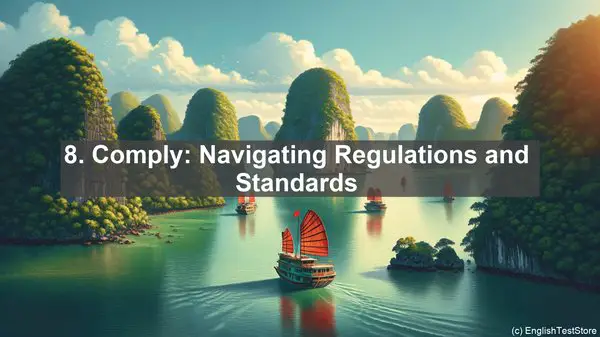Introduction: The Importance of English in International Trade
In today’s globalized world, English has become the lingua franca of international trade. Whether you’re negotiating a deal or discussing market trends, having a strong command of English verbs is crucial. So, let’s dive into the top 10 verbs that will enhance your conversational skills in this domain.
1. Negotiate: The Art of Reaching Agreements
Negotiations are at the heart of international trade. Whether it’s discussing prices, terms, or conditions, the verb ‘negotiate’ is your go-to. Remember, it’s not just about reaching an agreement, but also building relationships and finding win-win solutions.

2. Import/Export: The Backbone of Global Trade
The verbs ‘import’ and ‘export’ are the backbone of global trade. They refer to the movement of goods and services across borders. Understanding the nuances of these verbs, such as customs regulations and documentation, is essential for smooth transactions.
3. Adapt: Navigating Cultural Differences
In a globalized marketplace, cultural sensitivity is paramount. The verb ‘adapt’ goes beyond just language. It’s about understanding and respecting different customs, traditions, and business practices. Adapting to local norms can make or break a business deal.
4. Collaborate: Working Across Borders
The world of trade is increasingly collaborative. The verb ‘collaborate’ signifies working together with individuals or organizations from different countries. It involves effective communication, coordination, and leveraging diverse expertise for mutual growth.
5. Analyze: Making Informed Decisions
Data is abundant in the realm of international trade. The verb ‘analyze’ is about more than just collecting information. It’s about interpreting, evaluating, and drawing insights from data to make informed business decisions.
6. Market: Promoting Products and Services
To succeed in international trade, you need to effectively ‘market’ your offerings. This verb encompasses activities like market research, branding, advertising, and sales strategies. It’s about understanding customer needs and positioning your product or service accordingly.
7. Expand: Growing in Global Markets
The verb ‘expand’ signifies growth. In the context of international trade, it refers to entering new markets, increasing market share, or diversifying product lines. It requires strategic planning, market insights, and often, partnerships.

8. Comply: Navigating Regulations and Standards
International trade is governed by a myriad of regulations and standards. The verb ‘comply’ means adhering to these rules, be it related to product safety, intellectual property, or trade agreements. Non-compliance can have legal and reputational consequences.
9. Evaluate: Assessing Performance and Risks
Continuous evaluation is crucial in international trade. The verb ‘evaluate’ involves assessing various aspects, such as market performance, supply chain efficiency, and financial risks. It helps in identifying areas of improvement and mitigating potential challenges.
10. Innovate: Embracing Change and New Ideas
In a dynamic global landscape, the verb ‘innovate’ is key. It’s about embracing change, exploring new technologies, and finding creative solutions to emerging challenges. Innovation is often the differentiator in a competitive international market.
